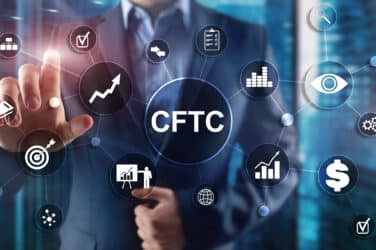
The derivatives industry is strongly supporting a proposed regulation to determine which swaps contracts will required to be cleared under the Dodd-Frank Act.
The proposal, issued in July by the Commodity Futures Trading Commission, establishes which classes of credit default swaps and interest rate swaps will be required to be cleared by market participants who trade various contracts cleared by a derivatives clearing organization.
The Principal Traders Group of the Futures Industry Association supports the proposal, saying that “it represents an important step toward central clearing of standardized OTC swaps, a key goal of the Dodd-Frank Act.”
The FIA PTG, which is comprised of 34 firms that trade their own capital in the exchange-traded markets, engages in manual, automated and hybrid methods of trading, and its members are a critical source of liquidity in the exchange-traded markets.
FIA PTG said that it supports increased central clearing and trading what today are OTC swap markets, given the importance of these markets to the risk management of U.S. business.
The mass of new regulations and directives has contributed to an increase in regulatory risk.
It’s easiest to simplify the discussion by breaking it into two parts: first, the strategic risk discussion includes the political/regulatory aspect of the environment in which a company operates, and secondly, the technical aspect of failure to comply with some provision of a law or regulation.
“To think of ‘regulatory risk’ as one big blob of stuff isn’t practical,” said Brian Barnier, principal analyst and advisor at ValueBridge Advisors.
“The strategic piece is a conversation for board and c-suite, it includes public policy,” said Barnier. “More broadly, it has international competitiveness and economic growth implications for all market participants. The tactical piece is about cutting cost of compliance overhead to avoid it being a drag on the economy or the company.”
The proposed CFTC rule is the first clearing determination by the Commission under the Dodd-Frank Act. Market participants would be required to submit a swap that is identified in the rule for clearing by a DCO “as soon as technologically practicable” and no later than the end of the day of execution.
A DCO would be required to post on its website a list of all swaps that it will accept for clearing and clearly indicate which of those swaps the Commission has determined are required to be cleared.
The proposed determination would require that swaps in four interest rate swap classes and two CDS classes be required to be cleared. By using basic specifications to identify the swaps subject to the clearing requirement, counterparties contemplating entering into a swap would be able to determine quickly whether or not the particular swap may be subject to a clearing requirement.
If the swap has the basic specifications of a class of swaps determined to be subject to a clearing requirement, the parties would know that they need to verify whether a DCO will clear that particular swap.
“The FIA PTG is encouraging the CFTC to move forward to subject other appropriate swaps asset classes to the clearing mandate.
Accomplishment of greater central clearing and trading will increase competition and transparency for market participants in addition to achieving the goal of lowering systemic risk by reducing interconnectedness in the financial markets, the group said.




